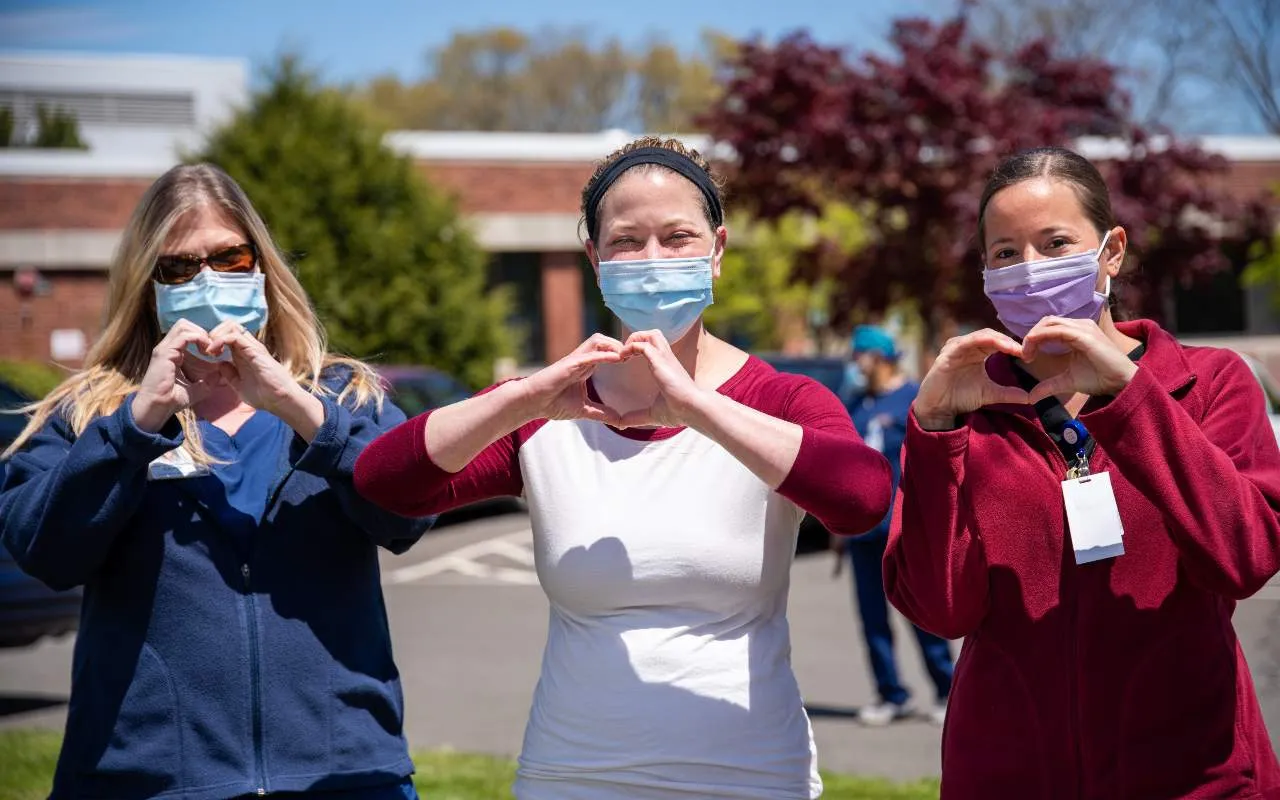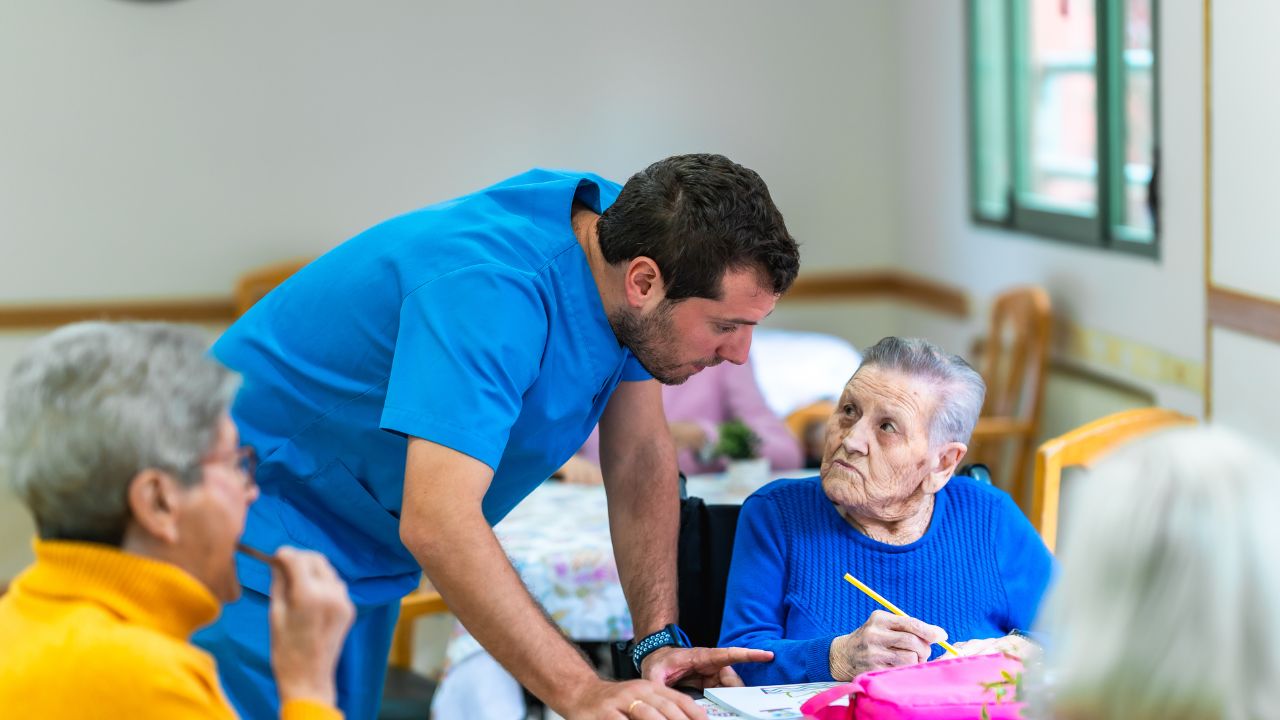Hospice nursing is not a popular topic, and to be fair, the subject of death is uncomfortable and even anxiety-producing for many across professions. As a whole, the nursing profession seeks to intervene with treatments and diagnoses and seeks to make the patient better and prolong their life.
In hospice, the focus shifts from those traditional concepts to one that focuses almost entirely on the quality of life with the understanding that death is imminent and to be accepted. Nurses are a vital part of end-of-life care, and while it's not a flashy specialty depicted in media, nor is it one of the top-paying specialties, it is one that is growing in demand alongside the aging baby-boomer generations. What is the hospice nursing specialty about? For all your hospice questions, we turned to Briana, a hospice nurse in Nevada, for answers.
What is hospice care?
"Hospice is the care for a person who is terminally ill, meaning without (or maybe even with) medical interventions. They are facing their last months or even weeks of life. Hospice care means instead of trying to diagnose and cure the patient or prolong their life - we want to relieve pain and provide comfort. The definition of hospice is very holistic because it takes into consideration the emotional or spiritual aspects of our patients and not only their disease. It focuses on helping people die with dignity and respect."
What's the difference between palliative care and hospice?
"Yeah, people confuse those often. Both concentrate on medical care that is focused on quality of life and comfort for the patients, but hospice is specifically for people who have a life expectancy of six months or less and have decided not to pursue any medical treatments that have the goal of curing them or extending their life. On the other hand, palliative care is an option for anyone with a serious and long-term diagnosis, even if they aren't terminal, and while receiving palliative care, they can still opt for medical interventions and treatments with the goal of getting better while still having a care plan that takes into account their quality of life and comfort."
What are comfort care mComfortll, comfort care is basically hospice care. So, comfort care measures are really the actions (or non-actions actually more fitting some of the time) that make up what hospice care is. Because hospice care is so focused on the quality of life each patient has remaining, many comfort care measures are actually counter to what a typical patient care plan would look like. For example, we stop administering medicines that do not provide comfort. That's a big comfort care measure, so many of the intervening medicines that healthcare professionals, in general, provide for patients are focused on curing, and often the medicines have uncomfortable side effects, or the regiment itself is disruptive to their days or nights. Other examples include stopping diagnostic testing, therapies, and labs, stopping blood draws, and other needle-involved tasks. Another is reducing the frequency of taking a patient's vitals, which, while not necessarily painful, everyone can admit is disruptive."
How did you decide you wanted to become a hospice nurse?
"I actually worked as a CNA while I was going to college because I knew I wanted to be a nurse, and so that kind of a job made sense, and then, of course, probably helped me get into nursing school because I had some perspective on what nurses really do. Anyway, I worked as a CNA in a nursing home. Lots of CNA jobs are actually in nursing homes, and even though it wasn't the setting I thought I wanted, it ended up being what introduced me to hospice. Working at the nursing home, it wasn't uncommon to have residents convert to hospice care plans. Not everyone does it. I think there's this instinct we all have to fight against the idea of death. To be clear, I am not saying anything bad about fighting an illness or a disease, or a condition. But when residents would convert to hospice care, often, there would be a weight lifted for themselves and sometimes even their families. Sometimes the decision was made by the residents themselves, being aware enough to decide for themselves that they were ready to stop fighting and focus on acceptance. Those were touching moments, but of course, not everyone who transitions to hospice care is cognizant enough to make that decision, so it falls to the family members. As a CNA in those situations, my support role felt very caring and compassionate. So yeah, that all planted the seed. When I graduated with my BSN and got licensed, I didn't go straight to hospice. I worked in a hospital for a few years. Ultimately, I kept coming back to the idea that my work in a hospital was very task focused and, despite best efforts, didn't feel very holistic. In the hospital, we focus on getting the person stable, getting the person better, and getting them discharged either to home or a facility. So after some years of experience, I started looking for hospice jobs, and here I am now, three years and no plans to leave."
Is it hard, emotionally, working for and connecting with your patients knowing they will die?
"Absolutely it's hard. And I think I have a healthy attitude towards death. I mean, I have to with my work. But yes, it can be hard, and kids are the hardest, honestly. There's such a feeling of injustice when my patient is a kid. With older patients in hospice, I can remember and feel peace with their dying because they've had the opportunity to live. Kids, on the other hand, haven't, and that injustice is super hard. I don't do private therapy all the time, but if I have a patient that is young, I'll put myself in therapy for a bit because I don't want my feelings to get in the way of the process for my patient or their family. However, it's not only hard. Hospice works to help the patient and their family grieve and accept the process of dying. Knowing that their last days, weeks, or months on this earth were spent with as little pain as possible and as much comfort as possible is satisfying. Having compassion for a dying patient and their family is necessary for this work, and sometimes that's easier than others. The process of acceptance is often easier for the patients than for their families. Even the families that are supportive of the hospice decision sometimes struggle because this is a drawn-out goodbye, basically. There's that knowing, and while that can prompt reconciliation of old hurts and beautiful moments to be remembered, it's still a goodbye. It's not a job that's for everyone, but it feels right for me."








.jpg)





